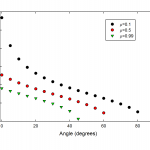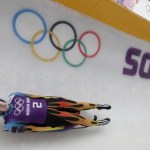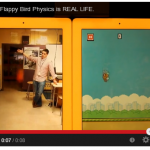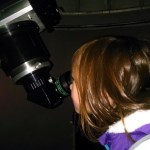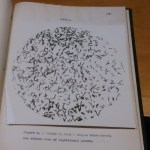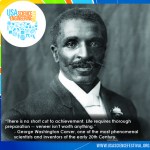This year's "Flame Challenge" is to explain color in terms an 11-year-old can follow. I have opinions on this subject, a background in AMO physics, and access to scientific equipment, so I'm putting something together. In the course of this, though, it occurred to me to wonder how my different portable computing devices process color. And since I have access to an Ocean Optics USB4000 spectrometer, I can answer this question in more detail than anybody needs.
So, I have three principal electronic devices that I use to do computer-type things: a Moto X smartphone, an iPad, and a Lenovo…
Science
In the previous post about luge, I mentioned that there was one thing that came up when Rhett and I were talking about this, namely why there are differences in times between racers. The toy physics model I set up last time suggests that the difference between riders is only a matter of aerodynamics-- two riders with the same mass and cross-sectional area ought to achieve the same speed. So why do they all get different times?
Well, if the sleds and other gear were all identical and locked into tracks, then mass and aerodynamics would be the entire story. But they're not-- the rules allow for…
USA Science & Engineering Festival X-STEM Speaker renowned aviator Barrington Irving sums up his current mission as a role model this way: "Kids want to be challenged, but today too many are bored and uninspired. I want to use aviation to excite and empower a new generation to become scientists, engineers, and explorers."
He has a lot to inspire kids about. Born in Jamaica and raised in Miami Florida's inner city, surrounded by crime, poverty, and failing schools, he beat the odds in 2007 when, at the age of 23, he became the youngest person ever (and only African American) to pilot a…
I was rather surprised yesterday to see so much negative reaction to my statement that there's more to evolution than selection, and that random, not selective, changes dominate our history. It was in the context of what should be taught in our public schools, and I almost bought the line that we can only teach a simplified version of evolution in grade school, but then it sunk in that I was talking to a group of adults about the standard biological perspective, and their reactions were a mix of total bafflement, indignant rejection, and strange evasive waffling. Well, when should we talk…
In the Uncertain Dots hangout the other day, Rhett and I went off on a tangent about the physics of the Olympics, specifically the luge. If you're not familiar with this, it's basically psycho sledding: people riding tiny little sleds down a curved track at 80mph.
The "featured image" above shows Erin Hamlin of the US women's luge team during a training run (AP photo from here); she went on to win a bronze medal, the US's first in individual luge, so congratulations to her. The photo gives you an idea of what's involved: tiny sled, icy track, curved walls.
(In the Winter Olympics context,…
We got over a foot of snow yesterday and today, so schools are closed. Except Union is a residential college, so we never close, which means I have to dig my car out all the same. Which I did, clearing a path to the unplowed street, then took Emmy for her morning walk. During which, of course, the town snow plows came around and filled in the end of our driveway again...
As I was digging out again, I was struck by just how far the snow had gone up the driveway-- I paced off about six meters from the edge of the road to the farthest clumps thrown up the driveway. As a way to distract myself…
I must confess, I had a rather rough time yesterday. Actually, it's been a rough winter, at least as far as my car is concerned. Record amounts of snow and a January much colder than usual have wreaked havoc on the roads around where I live, producing craters that make our roads and freeways look more like the surface of the moon than anything you'd want to go speeding along on in an automobile. So it was that about a month ago on my way to work I couldn't avoid a particularly nasty crater, and immediately after I hit it I knew something was wrong. My tire pressure light went on, and the car…
As an alternative to biblical creationism, Intelligent Design infers a less obtrusive God to explain life on Earth. This deity doesn't hurl bolts of lightning, unless it's with the express purpose of sparking abiogenesis in the primordial soup. On EvolutionBlog, Jason Rosenhouse dismisses probabilistic arguments against the likelihood of complex organisms, explaining that even the most improbable-seeming outcome of natural selection is more or less inevitable. As a flawed analogy, he imagines flipping a coin 500 times. This will always manifest a sequence of heads and tails that only had…
Brianne writes fairly frequently about her experiences as a clinic escort, dealing with shrieking fanatics who stand on sidewalks harassing people going into family planning clinics. They're hideous and awful and have lost all sense of perspective and humanity, and they're also remarkably ineffective…unless, of course, their goals are to make other people miserable and to expose their own obsessive inhumanity.
They have a lot in common with another group, animal rights protesters. Sanctimonious assholes, all of them. They're all over UCLA, and they're busy protesting researchers' homes, at…
I didn't advertise it heavily this time, but Rhett and I did another G+ hangout yesterday, and the video is online now:
We talked for a while about the wonders and importance of VPython coding (including some "Oh, I should totally do that..." moments), where we get post ideas (including a discussion of luge physics), briefly about how we put stuff together for posts, and a bit more about physics education research and why it's really difficult.
I had hoped to throw together a quick post about the luge thing for today, but that's probably not going to happen, so you'll have to settle for the…
Last week, Rhett did a post on animating a bouncing ball in VPython. This was mostly making a point about the distinction between real simulation and animation, along the lines of yesterday's post on social construction of videogame reality. But, of course, my immediate reaction was, "That's not how a bouncing ball looks..." This is how a bouncing ball looks:
(As you can see from the watermark, I'm trying out a new video editor...)
This is footage of four different types of balls bouncing on a lab cart in our stockroom, shot in gratuitous slow motion (240 fps) because I'm still playing…
One of the more annoying points of contention back in the days of the Sokal hoax and the "Science Wars" was an argument over social construction. This is, loosely speaking, the idea that our understanding of the world is not strictly rational and objective, but is heavily influenced by interactions with other people, and the culture in which we live. The idea originally arose in literary academia, but expanded to be applied to basically everything, including science.
At bottom, this is probably the best and most useful idea to come out of whatever collective "-ism" you want to use to refer…
SteelyKid's class at her after-school day care has been learning about space for the last month or two (the program is very flexible-- the teachers ask the kids what they want to learn about, and then they spend however long on that topic the kids like), so we've been getting a lot of tidbits about astronomy related to us during car trips and dinner conversation. Last night, there was an open house at the Union College Observatory, so I picked her up a little early, and took her to campus to look through the big telescope (20-inch Cassegrain, for those who care about such things). This served…
A couple of days ago, John Scalzi posted a writing advice open thread, asking people to share the best advice they'd gotten on the craft of writing. There's a lot of good stuff in there, much of it fairly specific to fiction writing-- stuff about plotting, the use of synonyms for "said," how to keep track of who's speaking, etc. As someone who's very much an outsider to that side of the writing business, it's interesting to read, but not that directly useful (I do have long stretches of dialogue in the How-to-Teach books, and occasionally needed to worry about the "said" thing there, but that…
Both SteelyKid's kindergarten and the snow-day day-care program that the kids go to were closed today, which kind of threw a wrench in things. But it's also kind of fun, as I got to spend some time playing outside with SteelyKid on her play set in the snow. The "featured image" above is a cell-phone snap from this, and I got three short video clips of her going down the slide.
Of course, it's kind of stupid for these to be three separate YouTube clips, but when I went to stick them together using Windows Movie Maker (which is what I've used for this sort of thing in the past), it turns out…
Back in the fall, I did a bunch of write-ups of old Master's theses that we found when clearing some space in a storage room. I got away from this because I was busy working on the book, but I have a few more that I pulled out to look at, and since all the other topics sucking up Internet energy at the moment are stupid or depressing, it seems like a good time to get back to these.
So, this is a thesis from 1934 by a fellow named Thomas Dietz, a combination of names that is common enough to make him less Google-able than you might want. This does seem to have been moderately significant work…
This week's hangout with Rhett Allain, in which we talk about how we got into physics, how we find stuff to read, what we enjoyed on physics blogs this week, what we do and don't like about Twitter, and the revenge of the Sith.
The specific blog posts we mentioned:
Frank Noschese's analysis of gravity in Flappy Birds
Ethan Siegel on Hawking and black holes
Bee at Backreaction on what Hawking really said
Timothy Burke on "administrative bloat" and faculty control
Dr. SkySkull on infinite series
Physics Buzz apologizing for starting the infinite series thing
Matthew Francis on polarization in…
I had originally planned on writing about a different topic today, but, as is so often the case in blogging, something came up that caught my attention, much as the errant thought of a squirrel distracts Dug the Dog. Well, actually, I had to go to an evening meeting for work last night and by the time I came home even the Plexiglass box of blinking lights didn't have enough of a charge left to deliver up fresh Insolence. Fortunately, there's some almost fresh Insolence from the other day that can be repurposed, something that seems imperative since one of the targets of today's Insolence is…
George Washington Carver – Botanist, Inventor and Educator
One of the most phenomenal scientists of the early 20th Century. He found amazing uses for the peanut, sweet potato and soy bean that continue to enrich our lives. And against racial obstacles, his achievements paved the way for generations of young African American scientists
The ultimate agricultural botanist and chemist, George Washington Carver, from his early years, was known for his curiosity and his "burning zeal to know everything", especially about nature. He soon became fascinated with how to use botany and other sciences…
There was a flurry of re-shares last week for this article about Yale shutting down a site that aggregated student course evaluations, which is fine as far as it goes, but repeats a stat that really bugs me:
About 43 percent of college letter grades in 2011 were A’s, up from 31 percent in 1988 and 15 percent in 1960, a 2011 study found. Over roughly the same span, the average amount of studying by people enrolled in college declined almost 50 percent, a 2011 study found, from 25 hours per week to 13 hours.
This is less bad than the usual, thanks to including the 1988 point, but it's still…

